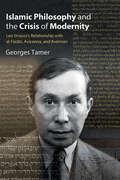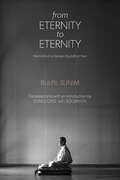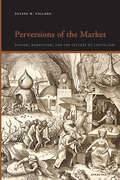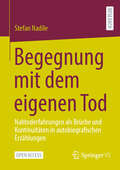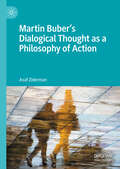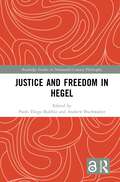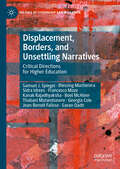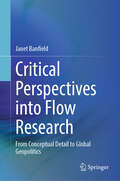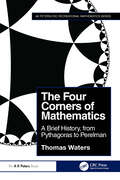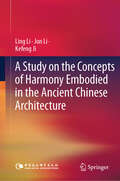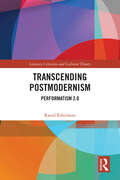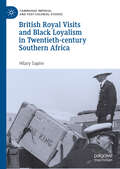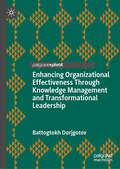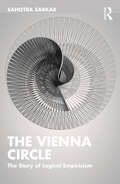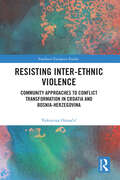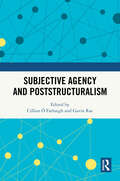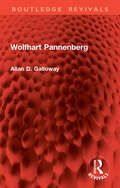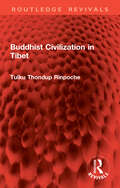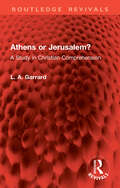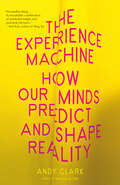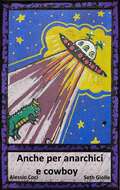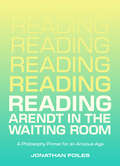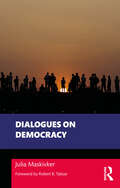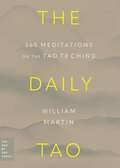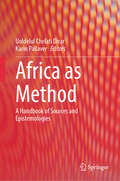- Table View
- List View
Islamic Philosophy and the Crisis of Modernity: Leo Strauss's Relationship with al-Fārābī, Avicenna, and Averroes (SUNY series in the Thought and Legacy of Leo Strauss)
by Georges TamerThis study examines the impact of the medieval Muslim philosophers al-Fārābī, Ibn Sīnā (Avicenna) and Ibn Rushd (Averroes) on Leo Strauss. Through meticulous source analysis, Georges Tamer critically evaluates Strauss's interpretation of their works. Furthermore, he explores how Islamic philosophy shaped Strauss's understanding of Maimonides and Plato, providing a compelling solution to the modernity crisis he identified. Offering fresh perspectives on the evolution of Strauss's thought and his distinctive approach to Arabic sources, Tamer sheds light on the pivotal role of al-Fārābī, the most significant Muslim philosopher in Strauss's view, including key aspects of al-Fārābī's political philosophy and his nuanced take on Plato's ideas. Islamic Philosophy and the Crisis of Modernity is a valuable addition to current scholarship on Strauss. Both philosophically erudite and philologically rigorous, Tamer presents the reader with a balanced perspective on Strauss's insights without being overly reverential or dismissive.
From Eternity to Eternity: Memoirs of a Korean Buddhist Nun
by Bulpil SunimFrom Eternity to Eternity is the story of Bulpil Sunim, arguably the most respected female Seon (Zen) master in Korea. Written with candor and an unpretentious sense of humor, her memoir provides both a fascinating record of her life and a deeply accessible window into Buddhist thought and spirituality. Describing and reflecting on her own experience of meditation and her journey as a woman in a male-dominated religious practice, she reveals the largely unknown realities of female monastic life in Korea. She also provides an unprecedented glimpse into her relationship with her father, the legendary Seon Master Seongcheol Sunim, who was widely considered a living Buddha in Korea. This lyrical autobiography, the first of its kind in Korean Buddhist literature, offers readers a chance to learn about Korean Seon meditation and practice from a woman’s perspective and will be of interest not only to scholars of Buddhism but to general readers curious about Buddhism, the experiences of religious women, or simply the remarkable life of a great spiritual leader.
Perversions of the Market: Sadism, Masochism, and the Culture of Capitalism (SUNY series, Insinuations: Philosophy, Psychoanalysis, Literature)
by Eugene W. HollandPerversions of the Market argues that capitalism fosters sadism and masochism—not as individual psychological proclivities but as widespread institutionalized patterns of behavior. The book is divided into two parts: one historical and the other theoretical. In the first, Eugene W. Holland shows how, as capital becomes global in scale and drives production and consumption farther and farther apart, it perverts otherwise free markets, transforming sadism and masochism into borderline conditions and various supremacisms. The second part then turns to Deleuze and Guattari's "schizoanalysis," explaining how it helpfully embeds Freud's analysis of the family and Lacan's analysis of language within an analysis of the capitalist market and its psycho-dynamics. Drawing on literature and film throughout to illuminate the discontents of modern culture, Holland maintains that the sadistic relations of production and masochistic relations of consumption must be eliminated to prevent capitalism from destroying life as we know it.
Begegnung mit dem eigenen Tod: Nahtoderfahrungen als Brüche und Kontinuitäten in autobiografischen Erzählungen
by Stefan NadileIn diesem Open-Access-Buch wird die Nahtoderfahrung (NTE) als Phänomen im Kontext der Erforschung des Todes, daraus abgeleitete Todesdefinitionen und ihr Wandel vor dem Hintergrund historischer Entwicklungen und ihren gesellschaftlichen Trends beleuchtet. Mit dem Bekanntwerden des Phänomens können in Bezug auf die Aussagekraft von NTE verschiedene Deutungen identifiziert werden, die sich zum Teil mit dem Aufkommen neureligiöser Bewegungen institutionalisieren. Darauf folgt eine Hinwendung zu individuellen Innensichten auf die NTE und ihrer Kommunizierbarkeit. Die kommunikative Erörterung solcher Ereignisse gilt als Gegenstand der Darstellung eines außergewöhnlichen Ereignisses in der autobiografischen Erzählung. Die Argumentationslinie einerseits und die Topologie der Deutungsebenen andererseits bilden die Grundlage für die Analyse der Studienergebnisse. Als Datengrundlage dienen eigens für diese Arbeit erhobene biografisch-narrative Interviews. Deren Analyse resultiert in einer Typisierung, wie NTE im autobiografischen Kontext gedeutet werden, welche sozialen Deutungsmuster dabei implizit zum Tragen kommen und wie die Person von ihrer Biografie erzählt. Jeder Typus steht je für eine Grundhaltung zur Lebenswelt und je für eine Strategie zur Integration der Erfahrung in das eigene Leben.
Martin Buber's Dialogical Thought as a Philosophy of Action
by Asaf ZidermanThe Act of Love promotes a philosophical revival of Buber’s dialogical thought by repositioning it as a philosophy of action, departing from a long-established consensus that narrowly viewed it as a post-Kantian epistemology. Based on careful analysis of his writings, the book’s main thrust is to reconstruct Buber’s argument that dialogue is the perfected form of action, and a perfect action is necessarily dialogical. This reconstruction renders Buber's dialogical thought pertinent to contemporary analytic philosophy by situating it within central discussions in the field of philosophy of action.
Justice and Freedom in Hegel (Routledge Studies in Nineteenth-Century Philosophy)
by Andrew Buchwalter Paolo Diego BubbioThis volume explores the relationship between justice and freedom in Hegel’s practical philosophy, with a particular focus on the pivotal concept of reciprocal recognition. The contributors analyze the intersubjective relations between individuals and institutions through the lens of Hegel and demonstrate how his account of justice and freedom can be applied to address pressing issues in political philosophy.Despite extensive scrutiny of the concept of justice by political philosophers, Hegel’s unique account has been notably overlooked. What sets Hegel apart is his emphasis on the inseparable link between justice and freedom. Freedom is inextricably tied to an account of just social relations and institutions, while justice itself is intertwined with a robust endorsement of freedom. The chapters comprising this volume examine three crucial dimensions of Hegel’s framework for freedom and justice. First, the contributors address how Hegel’s distinctive integration of freedom and justice sheds new light on the nature of his practical philosophy. Second, they relate Hegel’s theory to other prominent accounts of justice, including Rawlsian forms of Kantian constructivism, Habermas’ neo‑Kantian discourse theory, republican views, neo‑Aristotelian accounts, and critical theory approaches. Finally, the contributors apply Hegel’s reconstructed theory of justice to ongoing debates encompassing criminal justice, distributive justice, global justice, environmental justice, and issues related to racial and gender justice, as well as populism.Justice and Freedom in Hegel will appeal to scholars and advanced students engaged in research on Hegel’s practical philosophy, 19th‑century philosophy, and political philosophy.
Displacement, Borders, and Unsettling Narratives: Critical Directions for Higher Education (Politics of Citizenship and Migration)
by Samuel J. Spiegel Blessing Mucherera Sidra Idrees Francesco Moze Kanak Rajadhyaksha Boel McAteer Thabani Mutambasere Georgia Cole Jean-Benoit Falisse Savan QadirThis short book discusses some of the urgent critical debates regarding intercultural education on displacement during turbulent times of contentious border politics and ramped-up anti-migrant discourse. Drawing on original research and teaching insights from a team of co-authors from Pakistan, Iraq, Zimbabwe, Italy, India, Canada, the UK and beyond who are involved in teaching students from more than two dozen countries, it focuses on experiences of teaching in the midst of controversial refugee detention and deportation schemes – just some of many developments in the United Kingdom condemned strongly by several United Nations agencies. The authors’ analysis engages reflections, from diverse backgrounds and positionalities, on approaches to education that seek to deepen understandings of displacement experiences in an interconnected world as well as geopolitical responses, methodologies and representational practices.
Critical Perspectives into Flow Research: From Conceptual Detail to Global Geopolitics
by Janet BanfieldThis book breaks down barriers between disciplines engaging with flow, by speaking from geography into psychology to establish geographical foundations for this psychological phenomenon. It frames and works with the multiple contradictions within the extant literature as productive rather than prohibitive, thereby encouraging collaboration across discrepancies as well as across disciplines. It incorporates new materials and perspectives to research on flow, including aesthetic theory, new materialism, more-than-human geographies, and critical development geographies to broaden the theoretical and empirical landscape of future flow scholarship. It also digs more deeply into pre-existing areas of interest within flow research than has been done before, for example, with respect to ‘dark’ flow, ‘flowability’ and (tele)presence, to facilitate more nuanced engagement with such terms. It takes a step back from the detailed empirical work that characterizes most current flow research to pose questions as to how such divergent, even contradictory, findings can emerge from scholarship on a supposedly universal experience that is purportedly robustly constructed, and whether this contrariness is necessarily problematic or emblematic of flow itself and therefore worthy of conceptual elaboration. Finally, it evokes global scale and long-term critical perspectives on the future evolution of flow to counteract the presentism within existing work that emphasizes immediate gains (e.g., performance, wellbeing, profit), in an attempt to pre-empt the worst ramifications of the progressive commodification and strategization of flow. This innovative book is of interest to scholars from a range of fields, from psychology, to business and human resource management, leisure studies, and critical human geography.
The Four Corners of Mathematics: A Brief History, from Pythagoras to Perelman (AK Peters/CRC Recreational Mathematics Series)
by Thomas WatersThe Four Corners of Mathematics: A Brief History, from Pythagoras to Perelman describes the historical development of the ‘big ideas’ in mathematics in an accessible and intuitive manner. In delivering this bird's-eye view of the history of mathematics, the author uses engaging diagrams and images to communicate complex concepts while also exploring the details of the main results and methods of high-level mathematics. As such, this book involves some equations and terminology, but the only assumption on the readers’ knowledge is A-level or high school mathematics.Features Divided into four parts, covering Geometry, Algebra, Calculus and Topology Presents high-level mathematics in a visual and accessible way with numerous examples and over 250 illustrations Includes several novel and intuitive proofs of big theorems, so even the nonexpert reader can appreciate them Sketches of the lives of important contributors, with an emphasis on often overlooked female mathematicians and those who had to struggle.
A Study on the Concepts of Harmony Embodied in the Ancient Chinese Architecture
by Jun Li Ling Li Kefeng JiThis book explores the core concept of Chinese ancient architecture from a multidisciplinary perspective. It aims to contribute to the development, inheritance, and protection of Chinese ancient architectural culture, while also benefiting the sustainable development of modern architecture. This book follows a main line of inquiry, exploring the rich and harmonious ideas present in Chinese ancient architecture. It combines the traditional Chinese culture and architectural ideas, and examines the original thought that forms the foundation of the traditional Chinese architectural culture of “harmony” from various aspects. Firstly, the book describes the Taoist theory of the harmony between man and nature, as expressed through different architectural elements. Secondly, it discuses the system of harmony among people influenced by Confucianism. Lastly, it explores the significance of Buddhism in Buddhist architecture. Finally, it also examines the difference in the emodiment of harmonious ideas between Chinese and Western architectures. This book studies and analyzes the type and characteristics of Chinese ancient architecture, the architectural objects, and the simple ecological environment views contained within the architectural concept. It not only analyzes the historical development context, but also provides physical examples of architectural types, and explores the influence of regional environmental factors. The target audience for this book includes scholars in universities and scientific research departments, particularly those studying architectural aesthetics, history and philosophy, it is also suitable for the ordinary readers who have interest in Chinese traditional architectural culture.
Transcending Postmodernism: Performatism 2.0 (Literary Criticism and Cultural Theory)
by Raoul EshelmanTranscending Postmodernism: Performatism 2.0 is an ambitious attempt to expand and deepen the theory of performatism. Its main thesis is that, beginning in the mid-1990s, the strategies and norms of postmodernism have been displaced by ones that force readers or viewers to experience effects of aesthetically mediated transcendence. These effects include specific temporal strategies (“chunking”), stylizing separated subjectivity (the genius and the fool being its two main poles) and orienting ethics toward actions taken by centered agents bearing a sacral charge. The book provides a critical overview of other theories of post-postmodernism, and suggests that among five text-oriented theories there is basic agreement on its techniques and strategies.
British Royal Visits and Black Loyalism in Twentieth-century Southern Africa (Cambridge Imperial and Post-Colonial Studies)
by Hilary SapireExploring the entwined histories of British royal visits to Southern Africa in the twentieth century, this book analyses the clashing voices of dissent and cheering crowds that accompanied royal tours, providing insight into the shifting nature of ‘Black loyalism.’ Originating in the Indigenous empire loyalism of eighteenth-century Canada, Black loyalism encompassed loyalty to the British crown and a shared ideology of ‘rights and ‘entitlements,’ which positioned the crown as a source of protection against white settler rapacity, colonial violence, and racial oppression. However, expressions of monarchical devotion were often double-edged and addressed the fundamental contradiction of a crown that was both the source of rights and complicit in colonial conquest, appropriation, and misrule. It was on royal occasions such as jubilees, coronation celebrations, and especially royal visits, when the sovereign was literally amongst their more distant subjects, that loyalist sentiment was rekindled, reinvented, and made directly relevant to the concerns of the day. By analysing change and continuity in Black perspectives towards both the British and Indigenous African monarchy during these visits, this book offers a fruitful way into examining an array of Black Southern African discourses on governance, political values, and cultural identities across the region. It argues that the refashioning of British imperial monarchy in the twentieth century was profoundly shaped by African initiatives and re-imaginings, and provides valuable reading for those researching imperialism, popular attitudes to the British monarchy in the twentieth century, and the diverse politics and identities of southern Africa.
Enhancing Organizational Effectiveness Through Knowledge Management and Transformational Leadership
by Battogtokh DorjgotovThis book introduces the study of the impacts on organizational culture, strategy, technology, human resource development (HRD), transformational leadership, knowledge management, and organizational effectiveness using a hypothesis-driven model. The model posits that organizational culture, technology, strategy, and HRD are essential preconditions for effective knowledge management, which is further enhanced by transformational leadership. Focusing on Research and Development (R&D) organizations, specifically the research institutes of the Mongolian Academy of Sciences, the study examines how these factors collectively improve organizational effectiveness. Concluding with practical recommendations for R&D specialists and managers, the book offers insights into enhancing organizational efficiency through strategic leadership and robust knowledge management practices.
The Vienna Circle: The Story of Logical Empiricism
by Sahotra SarkarIn Vienna in the 1920s a group of brilliant philosophers, mathematicians, and scientists – led by figures such as Moritz Schlick, Otto Neurath, Rudolf Carnap, and Hans Hahn – gathered to discuss the foundations of science and mathematics. Known as the Vienna Circle, they proposed to practice philosophy in continuity with science; their movement became known as Logical Empiricism.In this highly engaging book, Sahotra Sarkar tells the story of one hundred years of Logical Empiricism, from its beginnings in 1924 to its legacy today. He explains how its ideas, influenced by revolutionary theories of space, time, and causality of that time, led to a quest for a unified theory of science. He shows how their commitment to logic and objectivity provided a powerful political antidote to Nazi racism and obscurantism. He charts the decline of the movement after many members, who had fled to the United States during World War Two, were presumed to have communist sympathies and subjected to surveillance and harrassment. He argues that the ideas of the movement continue to be relevant today.A superb evocation of one of the most important intellectual movements of the twentieth century, The Vienna Circle: The Story of Logical Empiricism will be of great value to anyone interested in philosophy, history, and the history of science.
Resisting Inter-Ethnic Violence: Community Approaches to Conflict Transformation in Croatia and Bosnia-Herzegovina (Southeast European Studies)
by Valentina OtmačićThis book analyses the 1991 to 1995 war experiences of ethnically mixed communities who successfully resisted identity-based violence and segregation in Croatia and Bosnia-Herzegovina. Challenging the prevailing view of the wars in these countries as ethnic struggles rooted in historical antagonisms, it adds complexity to our understanding of peace and violence by contributing previously untapped insights into local dynamics of inter-ethnic collaboration. Exploring the strategies and approaches applied to resist violence and to transform conflict in a constructive manner, it provides an important comparative analysis of the experiences and proposes a framework for community resistance to identity-based violence in multi-ethnic societies.This volume will contribute to the ongoing debates of scholars and practitioners on the causes and consequences of violent conflicts, and the related practical approaches to violence prevention and peacebuilding. Highly relevant to scholars and students in peace and conflict studies, political science, international relations, security studies, history, sociology, and social psychology, it willalso be of great interest to policy makers and practitioners in conflict management, conflict transformation and local governance.
Subjective Agency and Poststructuralism
by Gavin Rae Cillian Ó FathaighPoststructuralism has long been acknowledged to offer a radical critique of the foundational subject as a precursor to affirming a constituted subject. Its detractors have however held that the resultant position cannot offer a coherent account of agency (strong version) or, alternatively, that while it may be able to account for non-subjective agency, it is unable to develop a coherent explanation for subjective agency (weak version). Somewhat strangely, this issue has been largely ignored by commentators predisposed to poststructuralist thought. In contrast, this volume focuses on the works of Judith Butler, Cornelius Castoriadis, Gilles Deleuze, Jacques Derrida, Michel Foucault, Luce Irigaray, Jacques Lacan, and Catherine Malabou, to show that the question of the subject is a key one for many poststructuralist thinkers, that they are aware of the problematic status of agency that arises from their decentering of the foundational subject, and that they offer heterogeneous responses to it.Subjective Agency and Poststructuralism will therefore be an invaluable resource for researchers and advanced students interested in philosophy, political theory, psychoanalysis, critical theory, history of ideas, feminist theory, and cultural studies.
Wolfhart Pannenberg (Routledge Revivals)
by Allan D. GallowayFirst published in 1973, Wolfhart Pannenberg is intended as an introduction for those who do not already know Pannenberg’s theology and to discuss some of the problems which it presents for those who do.Pannenberg’s theology of history has already been widely discussed. This is the first work to treat his theology as a whole—his doctrine of man, of history, of God and the Trinity, of Christology and resurrection, of Church and eschatology—showing how it all hangs together. It presents Pannenberg’s work sympathetically but not uncritically. Criticism which others have made are discussed and some new ones offered. The exposition is creative, offering fresh interpretations and, occasionally, venturing to suggest possible improvements in Pannenberg’s presentation of his argument. It is thus an original contribution as well as an interpretation.This book is directed to that growing section of the public which likes to keep in touch with what is happening in the forefront of theology and to know where the growth points are. Theological students will find it a useful aid to their own reading of Pannenberg.
Buddhist Civilization in Tibet (Routledge Revivals)
by Tulku Thondup RinpocheFirst published in 1987, Buddhist Civilization in Tibet is unique among works in English as it provides a whole range of information on Tibetan religion and literature, with extensive scholarly data, in a compact single volume. An invaluable reference book, it shows what is available within different traditions and literature, and what will be helpful for English-speaking students who are interested in Tibetan Buddhism, its culture and literature.In the first part of the book, the author provides a survey of Buddhism in Tibet, and an account of the doctrine and history of the four major Buddhist schools of Tibet—Nyingma, Kagyud, Sakya and Gelug—with lists of their major monastic institutions. In the second part, he gives an overview of Tibetan literature, with a summary of both the secular and religious literature of Tibet, and particular emphasis on the scope of literary works of the four major Buddhist schools.
Athens or Jerusalem?: A Study in Christian Comprehension (Routledge Revivals)
by L. A. Garrard‘What has Athens to do with Jerusalem? What agreement is there between the Academy and the Church?’ Tertullian’s outburst is still being echoed in some quarters, notably in the Biblical Theology School, which tries to minimize the influence of Greek thought on the Christian tradition. There are some circles in the World Council of Churches which would use its new formula of doctrinal orthodoxy to exclude the Unitarians and Quakers. Yet as Ernest Scott wrote, ‘Liberty is inherent in the Christian Faith, and liberty always makes for difference’. Athens or Jerusalem? (first published in 1965), based on the Minns Lectures of 1963, is unique as it gives a comprehensive survey of Christian thought and is designed to show that it is an amalgam of elements from both Athens and Jerusalem, and other sources as well. It concludes with a consideration of the question: how far is it possible to diverge from the mainstream of Christianity without ceasing to be Christian?
The Experience Machine: How Our Minds Predict and Shape Reality
by Andy ClarkA brilliant new theory of the mind that upends our understanding of how the brain interacts with the world&“This thoroughly readable book will convince you that the brain and the world are partners in constructing our understanding.&” —Sean Carroll, New York Times bestselling author of The Biggest Ideas in the Universe: Space, Time, and MotionFor as long as we&’ve studied human cognition, we&’ve believed that our senses give us direct access to the world. What we see is what&’s really there—or so the thinking goes. But new discoveries in neuroscience and psychology have turned this assumption on its head. What if rather than perceiving reality passively, your mind actively predicts it?Widely acclaimed philosopher and cognitive scientist Andy Clark unpacks this provocative new theory that the brain is a powerful, dynamic prediction engine, mediating our experience of both body and world. From the most mundane experiences to the most sublime, reality as we know it is the complex synthesis of sensory information and expectation. Exploring its fascinating mechanics and remarkable implications for our lives, mental health, and society, Clark nimbly illustrates how the predictive brain sculpts all human experience. Chronic pain and mental illness are shown to involve subtle malfunctions of our unconscious predictions, pointing the way towards more effective, targeted treatments. Under renewed scrutiny, the very boundary between ourselves and the outside world dissolves, showing that we are as entangled with our environments as we are with our onboard memories, thoughts, and feelings. And perception itself is revealed to be something of a controlled hallucination.Unveiling the extraordinary explanatory power of the predictive brain, The Experience Machine is a mesmerizing window onto one of the most significant developments in our understanding of the mind.
Anche per anarchici e cowboy
by Seth GiolleUn Richiamo alla Tribù e alla Comunità per il Futuro dell’Umanità Anche per anarchici e cowboy Viviamo in un’epoca di incredibili progressi: la nostra società ha raggiunto traguardi impensabili. Dalla tecnologia avanzata alla scienza e all'astrofisica, siamo riusciti a mettere piede sulla Luna e a mandare sonde oltre i confini dello spazio conosciuto. Siamo a un passo da Marte e stiamo trasformando in realtà le fantasie più audaci della fantascienza, come il teletrasporto o la velocità di curvatura. Eppure, qui sulla Terra, mentre costruiamo automobili futuristiche, sviluppiamo medicine rivoluzionarie e coltiviamo piante che crescono anche nei deserti più aridi, sembra che abbiamo smarrito qualcosa di fondamentale: la nostra anima. Le conquiste tecnologiche spesso restano nelle mani di pochi, mentre vasti segmenti dell'umanità affrontano la fame, la sete e la disperazione. Se vogliamo davvero costruire un futuro condiviso e unirci come razza umana, dobbiamo tornare alle nostre radici, riscoprire i valori della tribù e della comunità. Nessuno può essere lasciato indietro. Questo libro ci guida attraverso l'immaginario di Maker Millwright, un costruttore di sogni visionario. Esploreremo il suo percorso, scoprendo come costruisce le basi del suo pensiero, innalza muri per proteggere e lancia il suo sguardo verso il cielo, perché chi non smette di sognare non conosce limiti. Per chiunque abbia il coraggio di accogliere il cambiamento, le possibilità sono infinite! E sì, qui c’è posto per tutti. Anche per gli anarchici e i cowboy.
Reading Arendt in the Waiting Room: A Philosophy Primer for an Anxious Age
by Jonathan FoilesAnxiety may be the defining feeling of our current era, and though it affects many people on a deeply personal level, the last few years have also witnessed the rise of more communal feelings of dread and unknowing, problems that sometimes seem too bi
Dialogues on Democracy (Philosophical Dialogues on Contemporary Problems)
by Julia MaskivkerDialogues on Democracy offers a panoramic overview of recent and classical debates on the meaning of democracy as a philosophical ideal. It features some of the most central discussions that exist in the literature regarding its value, its purpose, and its (possible) flaws.Accessibly written and efficiently organized, the book is structured around a fictional conversation involving four participants: a teacher of philosophy and political theory and three of her most notable and dedicated students. Their dialogues capture the essence of some of the most powerful objections and counter objections to democracy and its institutions, allowing the reader to understand the origins and logic of much philosophical thinking concerned with political life. Maskivker provides succinct but highly informative arguments in defense of democracy while deftly addressing serious questions regarding its legitimacy coming from diverse corners of the ideological spectrum. The discussion addresses issues concerned with the justification and institutional plausibility of collective government, citizen equality, political representation, citizen action, civic virtue, and many other themes.Perfectly suited for a first introduction to the philosophical analysis of democracy, the book covers extensive ground in an instructive and dynamic way. In the book, Maskivker also offers her own novel insights regarding the value of democracy and its distinct interpretations – a contribution that makes the book all the more interesting and complete.Key Features: Introduces important thinkers in the contemporary debate about theories of democracy Assumes no background knowledge of philosophy or political theory Written in an engaging dialogue format between four fictional characters: a teacher of philosophy and political theory and three of her most notable and dedicated students.
The Daily Tao: 365 Meditations on the Tao Te Ching (Day by Day Series #3)
by William MartinChoose peace over distraction and flexibility over fear with this accessible daily guide to the timeless wisdom of the Tao Te Ching. Whether you begin your morning with the Tao or snatch a spare moment of calm in the hurry of the day, The Daily Tao–with a reading from the Tae Te Ching for every day of the year–will create a practice of reflection that will echo through your life. Author William Martin's extensive work on the Tao has been embraced by countless readers and praised by the likes of Oprah and Alice Walker. Drawing on work first shared in his beloved book A Path and a Practice, this original translation of the Tao maintains the lyrical poeticism of the text while making its wisdom accessible for all. The Daily Tao is part of The Day by Day series, a collection of books designed to help readers infuse the rhythms of their lives with meaning and intention. Our lives are built by small choices, tiny moments, and quiet thoughts–The Day by Day series is a gentle way to choose those moments and begin to build a life you love.
Africa as Method: A Handbook of Sources and Epistemologies
by Karin Pallaver Uoldelul Chelati DirarThis methods handbook investigates the multiple sources and interdisciplinary methodologies employed by scholars working on Africa. It illuminates how scholars of Africa locate, select, interpret, and combine sources to reconstruct Africa’s past. Each contributor presents a specific typology of source or body of sources. Focusing on specific case studies, the chapters offer a broad overview of the methods and sources employed by historians, anthropologists, linguists, and related disciplines in the humanities and social sciences, working on Africa. The topics covered are diverse and include the significance of oral sources and how they relate to written sources; the perspectives provided by female writings on and from Africa; the relevance of Islamic court records for the study of Africa; the use of songs and poetry for the understanding of contemporary political protests; the employment of photographs and other visual sources for the study of the African past; how new sources or new interpretations of existing ones can provide different historical periodization; and finally, how biographies and autobiographies, including personal experiences with fieldwork in Africa, can contribute to shed light on Africa’s past. The book is a valuable resource for graduate students and academics interested in doing research on Africa. It provides a sweeping but rich understanding of the methodologies in the field of African studies, and for historians in general. Ultimately, this book contends that the specific methodologies developed for the study of Africa are relevant not only for the understanding of the continent itself, but can also contribute significantly to the historical method more widely.
